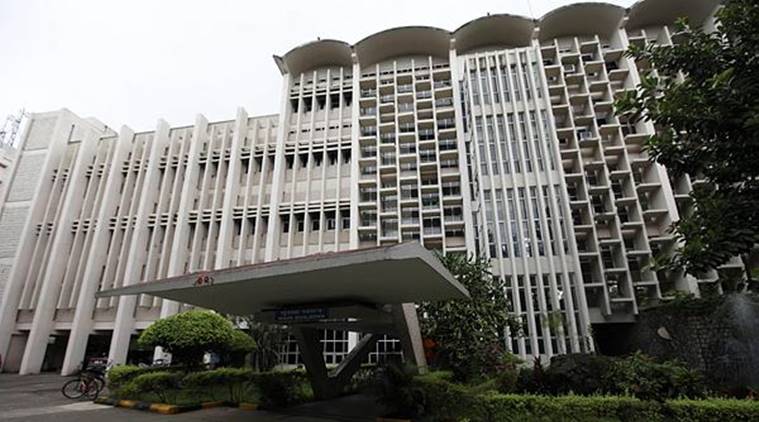The UK, Gulf countries, and Egypt are among 7 locations on the IIT expansion list.

The UK, Gulf countries, and Egypt are among 7 locations on the IIT expansion list.
A committee assembled by the Centre for the Global Expansion of IIT has identified the UK, UAE, Egypt, Saudi Arabia, Qatar, Malaysia, and Thailand as potential locations for offshore campuses operating under the name “Indian Institute of Technology.”
The criteria include the degree of interest and dedication; academic pedigree; an environment that attracts top staff and students; regulatory requirements; and possible advantages to improve India’s “branding and reputation.”

According to a report that the 17-member committee, headed by Dr. K. Radhakrishnan, chair of the IIT Council standing committee, issued to the Ministry of Education, these seven nations scored highly on several important metrics. The criteria include the degree of interest and dedication; academic pedigree; an environment that attracts top staff and students; regulatory requirements; and possible advantages to improve India’s “branding and reputation.”
The Economic Diplomacy division of the Ministry of External Affairs organized two virtual meetings between the committee and embassy officials on February 2 and March 28. The report is based on comments from the heads of 26 Indian posts.
The mission has reportedly received “six concrete proposals of cooperation from the University of Birmingham, King’s College London, University of Exeter, University of Oxford, University of Cambridge, and University College London,” according to information shared by the Indian High Commission in the UK. “Our mission has asked the institutions and the IIT committee to meet on several occasions. According to the report, which The Indian Express has examined, to move further with this idea, it has also asked for a full concept note and a nodal contact person.
According to the research, IIT-Delhi is the top option, according to the UAE, Saudi Arabia, Egypt, and Malaysia. The report said Egypt is eager to start an arrangement, electronically if not physically, between 2022 and 2023. The committee, however, has cautioned against making rash decisions and suggested that only residential campuses be created after careful consideration.
“When creating new institutes, the local government must pledge a set amount of land for the campus. The institutes are being formed not for business but rather to improve the nation’s reputation overseas. As a result, these institutions ought to serve the local student body (which could be the Indian diaspora). According to the study, less than 20% of the students in these institutions should be Indian.
The idea of IITs growing internationally is not new. IIT Delhi is now in discussions with the Department of Education and Knowledge in Abu Dhabi, United Arab Emirates, while IIT Madras is looking at opportunities in Sri Lanka, Nepal, and Tanzania.
The talks thus far have mostly focused on certain IITs. The committee has, for the first time, put out a proposal in which domestic IITs would serve as mentors and a chain of schools would be established under the Indian Institute of Technology brand name.
The directors of IIT Delhi, Madras, and Kharagpur; ISM Dhanbad, Guwahati, and Kanpur; the Indian Institute of Science; NIT Surathkal; the vice-chancellors of JNU, Delhi University, University of Hyderabad, and Banaras Hindu University; and the dean of IIT Bombay’s department of international relations were among the committee’s members.
The Indian Institute of Technology (country name) might be the name of the new institution. The proposed name is sufficiently similar to IIT with the addition of international to highlight or make clear that the institute is located outside of India. According to the research, the newly created institutes would be able to develop their own identity and ethos while relying on the strengths of the current IITs thanks to the name difference (with enough similarities).
A “significant investment by the government of the host nation or the Indian government” will be needed for the initiative to be successful and not burden the mentor institutes, the researchers noted. The committee stated in its report that “the sponsoring institution in India could anticipate a reasonable amount of royalty” from such a campus (say 10% to 15% of the entire spending of the offshore school).
Additionally, the offshore campus will have to abide by the rules and laws of the host nation, so there will be no exceptions for students or personnel unless specifically permitted by local legislation. According to the committee’s assessment, “the Act of Parliament by which these institutes are founded should offer them greater latitude than the present IITs.”
Bhutan, Nepal, Bahrain, Japan, Tanzania, Sri Lanka, Vietnam, Serbia, Singapore, South Korea, and Uzbekistan are rated one rung behind the seven recognized nations in the committee’s study. The committee advised Indian officials to negotiate agreements with these nations as well.
edited and proofread by nikita sharma




